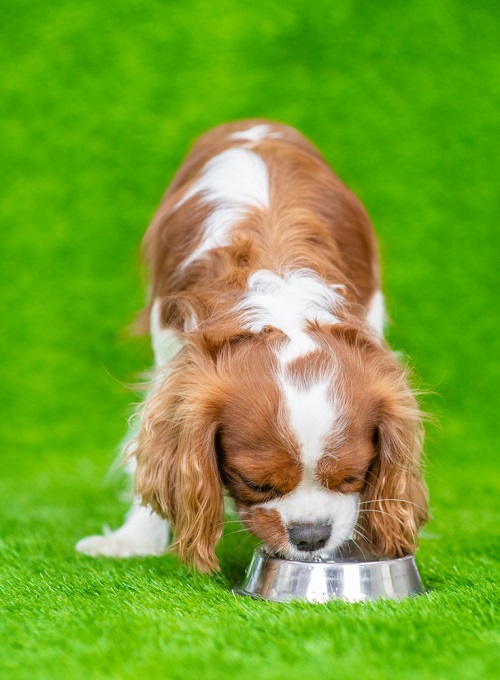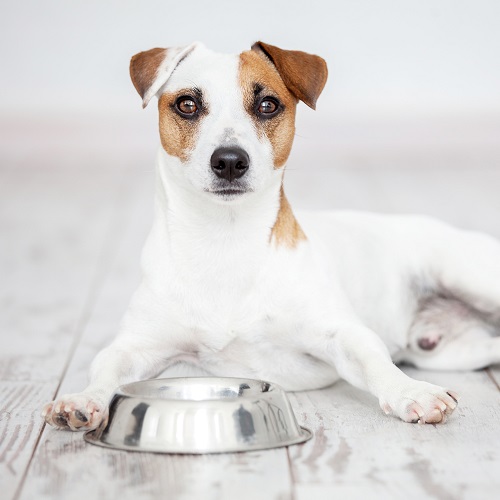Can Dogs Eat Quinoa? If you are not sure, then don’t worry. We will guide you with all the details and information.
Can Dogs Eat Quinoa? Is it a healthy alternative for dogs? Would it be a good idea to include it in their diet on a regular basis? Time to find out!
What is Quinoa?

Quinoa is a highly nutritious pseudocereal that has been a staple in the Andean region of South America for thousands of years. It is not a true cereal, as it does not come from a grass species; instead, it is derived from the seeds of the Chenopodium quinoa plant.
Read here about Can Dogs Eat Pizza | Is Pizza Safe for Dogs?
Can Dogs Eat Quinoa?
Yes, dogs can eat quinoa safely when prepared and served appropriately. It can be a beneficial addition to a dog’s diet, particularly for those with certain dietary restrictions or sensitivities.
Health Benefits of Quinoa
Here are benefits of quinoa for dogs when included in their diet:
- High-quality protein: It is a complete protein containing all nine essential amino acids.
- Gluten-free: Quinoa is a gluten-free alternative to grains like wheat, barley, and rye.
- Rich in nutrients: Quinoa is packed with vitamins and minerals such as magnesium, phosphorus, potassium, and B vitamins.
- Fiber Content: Quinoa contains a good amount of dietary fiber, which can aid in digestion.
- Low glycemic index: Quinoa has a low glycemic index, meaning it won’t cause rapid spikes in blood sugar levels.
Read here about Can Dogs Eat Squid | Are squids Safe for Dogs?
A Few Health Concerns

- Uncooked quinoa: Always cook quinoa before serving it to your dog, as uncooked quinoa contains saponins, which can cause irritation in the gastrointestinal tract.
- Allergic reactions: Some dogs may develop an allergy or intolerance to quinoa. Watch for signs such as itching, vomiting, diarrhea, or skin issues, and consult your veterinarian if you suspect an allergy.
- Overfeeding: Excessive consumption of quinoa can lead to weight gain, as it is calorie-dense. Serve it in moderation and adjust your dog’s overall diet accordingly.
- Added ingredients: Quinoa should be served plain, without any added seasonings, spices, or oils that could be harmful to your dog.
Safe Way to Feed Quinoa to Dogs
- Rinse the quinoa: Before cooking, thoroughly rinse the quinoa under cold water using a fine-mesh strainer. This will help remove saponins, which can cause gastrointestinal irritation in dogs.
- Cook the quinoa: Add one part quinoa to two parts water in a saucepan.
- Cool it down: Allow the cooked quinoa to cool down to room temperature before serving it to your dog.
- Serve plain quinoa: Do not add any seasonings, spices, or oils to the quinoa. Serve the quinoa plain or mixed with their regular dog food.
- Introduce gradually: Start with a small amount of quinoa and gradually increase the portion size. This allows your dog’s digestive system to adjust to the new food.
- Monitor your dog: Keep an eye on your dog for any signs of an adverse reaction, such as vomiting, diarrhea, or itching. If you notice any issues, stop feeding quinoa and consult your veterinarian.
Read here about Can Dogs Eat Herbs | Are Herbs Safe for Dogs?
Quinoa Dishes that are Unsafe for Dogs
Here are some types of quinoa dishes that dogs should not eat:
- Quinoa dishes that contain onions or garlic: Both onions and garlic can be toxic to dogs and can cause damage to their red blood cells.
- Spicy quinoa dishes: Dogs’ digestive systems are sensitive to spicy foods, so it’s best to avoid giving them any quinoa dishes that are seasoned with hot peppers or spices.
- Quinoa dishes with added sugar: Dogs don’t need added sugars in their diet, and consuming too much sugar can lead to obesity, dental problems, and other health issues.
- Uncooked quinoa: Dogs should never consume uncooked quinoa because it contains saponins, which are natural plant chemicals that can be toxic to dogs.
Dog-Safe Quinoa Recipe

Here’s a simple, dog-safe quinoa recipe you can prepare for your furry friend:
Ingredients:
- 1 cup quinoa
- 2 cups water
- 1 cup chopped, cooked vegetables (e.g., carrots, green beans, peas, or zucchini)
- 1 cup cooked, lean protein (e.g., chicken, turkey, or lean beef)
Instructions:
- Rinse the quinoa thoroughly under cold water using a fine-mesh strainer to remove saponins.
- Combine the rinsed quinoa and water in a saucepan. Bring to a boil, then reduce the heat to low, cover, and let it simmer for about 15 minutes or until the quinoa is cooked and the water is absorbed.
- Allow the cooked quinoa to cool down to room temperature.
- In a large mixing bowl, combine the cooked quinoa with the chopped, cooked vegetables and cooked lean protein. Mix well to ensure the ingredients are evenly distributed.
- Serve a portion of the quinoa mixture to your dog based on its size and dietary needs. Replace a portion of their regular dog food with this mixture to maintain a balanced diet.
- Store any leftovers in an airtight container in the refrigerator for up to 3-4 days. Reheat to room temperature before serving your dog.
Read here about Can Dogs Eat Almond Butter | Is Almond Butter Safe for Dogs?
How Much Quinoa Can Dogs Eat?
It is essential to introduce quinoa gradually and serve it in moderation to avoid overfeeding and potential gastrointestinal issues. As a general guideline, you can replace about 10-25% of your dog’s regular food with cooked quinoa, depending on your dog’s specific needs.
Read here about Can Dogs Eat Pizza | Is Pizza Safe for Dogs?
Quick Takeaways
So, Can Dogs Eat Quinoa? Yes! However, it’s always advisable to consult your veterinarian before introducing any new food to your pet’s diet. Generally, quinoa is considered safe for dogs when prepared correctly and free of harmful additives.
